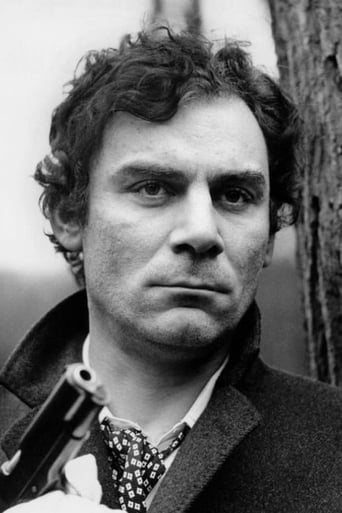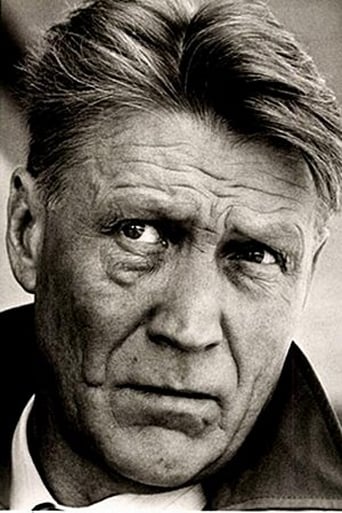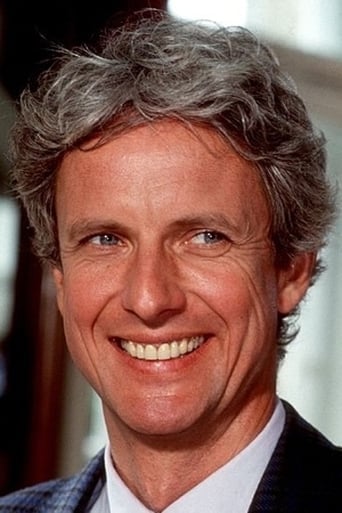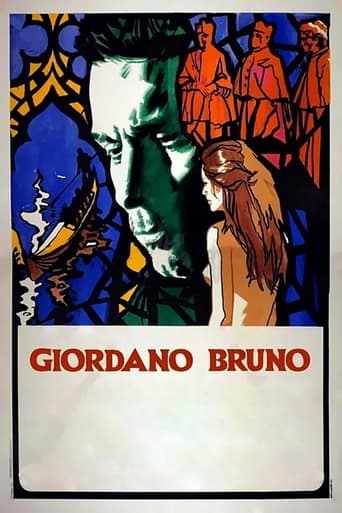
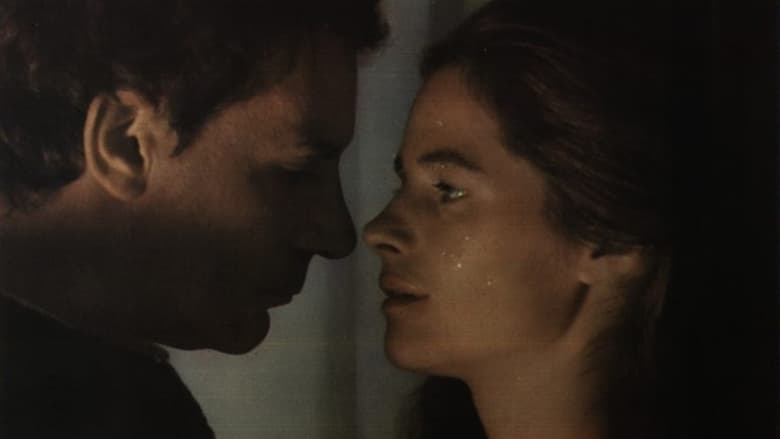
Giordano Bruno (1973)
Fleeing from his enemies in the Catholic Church, the free thinking philosopher, poet and scientist Giordano Bruno has found some protection in Venice. But the Roman Inquisition, fearing his influence in Europe, wants to bring him on trial for 'heresy'.
Watch Trailer
Cast


Reviews
This a film for the thoughtful. It relies on intelligent dialogue,great acting and period recreation. If you want action, look somewhere else,but this film is simply DRIPPING with dramatic tension from start to finish.It is gripping portrait of the times and politics when the church sought to consolidate it's power over a changing world and persecuted many like Bruno, Copernicus, Galileo.Due to constraints of time it only outlines the free thinking ideas and philosophy of Bruno that led to his trial for heresy.If you want to understand them fully you must look to his writings. I saw one post that said he found it boring ; I can't believe that. I found it riveting from the first frame!
This is nothing less than a formidable film of almost excruciating force and power in its overwhelmingly correct realism in depicting the tremendous passion of this the greatest of free-thinkers, his denouncement by his best friend and host and the horrible inhumanity of the bureaucracy of the inquisition. When once in the hands of the inquisition, the system was simply so constructed, that it was impossible to get out again - no revocation could help, and all that Venice could do, being after all a republic out of papal control, was to wash their hands and hand the case over to others, leading to a constantly more desperately dwindling spiral of a process to perdition. Gian Maria Volonte is magnificent as Bruno, he couldn't have been made more convincing in his increasingly desperate argument and protests, showing also his very human sides, while the chief merit of the film is its marvellous visual language, often turning the film into pure expressionism, aided by the at times overwhelmingly apt music by Ennio Morricone. This is more than a film, it's an inspired passion of a film, showing Italian historical realism at its best. I didn't know this film existed before I stumbled upon it searching for something else, and starting to watch it there was nothing else to do but to see it through till the end. It should be made more widely known, and it is a good match and complement to the Neil Jordan's Borgia films last year.
Montaldo's precedent work was about America 's famous political prisoners Sacco and Vanzetti.Ennio Morricone's score was as excellent as usual and he asked Joan Baez to write four songs ,the words of three of them were taken from letters of Vanzetti.And there was Gian Maria Volonte who like Baez was a committed artist.Montaldo continued with politics in "Giordano Bruno".The scientist-philosopher ,played by Volonte again,was a visionary man extraordinaire ,so ahead of his time his thoughts seem sometimes contemporary.His world ,at the beginning of the modern times only knows two concepts:good and evil;it cannot free itself of the first conflict between God and Satan.God is not above ,says Bruno,he's everywhere ,in every plant,in every stone ,in every grain of sand of the creation.What the Holy(!) Office cannot forgive him ,outside this "heresy" is that he keeps on repeating that religion helps man dominate man,all that these cardinals are doing every day (who has the right to kill? says Bruno) Time had not come for science.Bruno's so called friend just wanted him to give him the power to dominate his fellow men.All that you could not understand was magic ,black magic .Like Sacco and Vanzetti,Bruno was a political prisoner ,a movie about him made sense after the 1971 work.And again,marvelous score by Morricone.
Giordano Bruno was an Italian philosopher who excited the rage of the Catholic Church and finished in the flames of a pyre in Campo dei Fiori in Rome on 17 February 1600. Today a statue stands in his honor in this piazza. As a very young man he entered the Dominican Order, was ordained in 1572, but within a few years was running through Europe, publishing a variety of clever and original literary, theological, and philosophical texts that made many angry. In 1591 he reached Venice, where he displeased a Mocenigo and was denounced to the Inquisition. He was sent to Rome, where he spent six years in prison before he was burned at the stake for heresy. Gian Maria Volonté, one of the great actors of the century, who appeared in such disparate films as For a Few Dollars More, The Abyss, and Il Caso Moro, stars as the sensual and highly intelligent monk. The narrative begins with Bruno's arrival in Venice, and naturally the movie compresses much and doubtless has simplified. Nonetheless the skillful evocation the character of Bruno in the Venice and Rome of the 1590s is highly enjoyable. I watch this movie three or four times a year.


